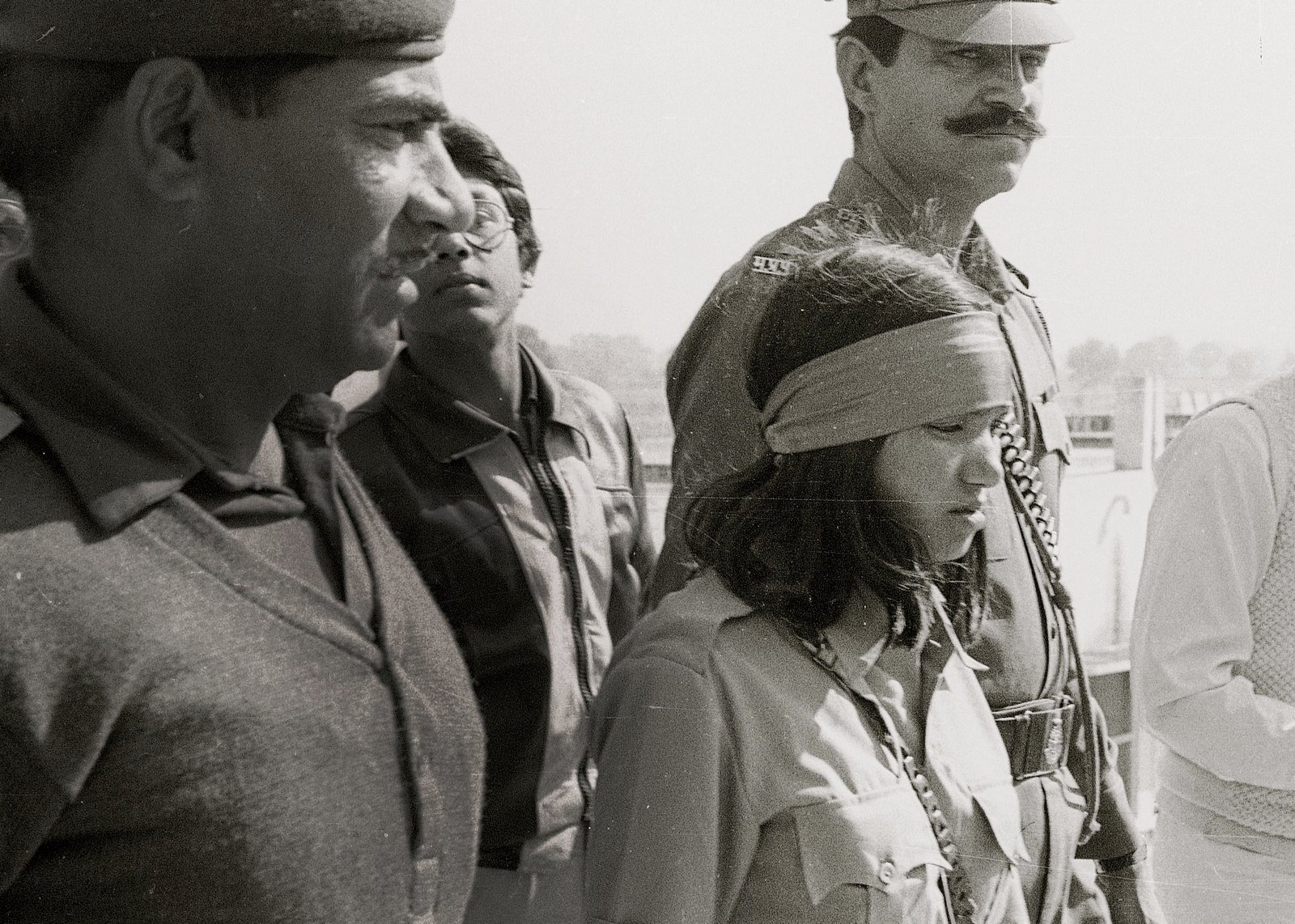February 1983, a 20-year-old young woman known as Phoolan Devi, walked out of the forested ravines of the Chambal River valley and handed over her gun. She bowed to images of Gandhi and the goddess Durga and surrendered herself to the Chief Minister and Chief of Police of Madhya Pradesh state in central India.
The cheering crowd of around 10,000 people gathered that day including journalists; politicians, some cops; and others from across the dry, impoverished center of the world’s largest democracy—knew Phoolan Devi as a hero, a bandit, a murderess, and a goddess long before they saw her in the flesh.
Phoolan Devi, India’s celebrated Bandit Queen, was not a woman, but a legend.

Born to a low-caste in a village on the banks of the Yamuna River in Uttar Pradesh in 1963, Phoolan Devi was, by the time of her surrender, wanted on 22 counts of murder and another 26 counts of kidnapping and looting. At 31, after a decade in prison, she became the subject of a major Bollywood film, Bandit Queen.
Four years after that, she was elected to her first term in India’s parliament, the first low-caste woman to hold that distinction. In 2001, at the age of 37, while serving her second term, she was shot dead in front of her home in Delhi
Title: Phoolan Devi: The Bandit Queen Turned Politician and Symbol of Resistance
In the annals of Indian history, few figures have captured the imagination and sparked controversy like Phoolan Devi. Her life was a saga of defiance, rebellion, and eventual redemption, making her a symbol of both oppression and resistance.
Born into poverty in a small village in Uttar Pradesh in 1963, Phoolan Devi’s early years were marked by hardship and deprivation. Married off at a young age, she endured abuse and exploitation at the hands of her husband and in-laws, experiences that would shape her worldview and fuel her thirst for justice.
Phoolan’s life took a dramatic turn in 1979 when she was kidnapped by a gang of dacoits led by Babu Gujjar. For several weeks, she was held captive and subjected to abuse and humiliation. However, Phoolan refused to be broken. In a daring act of defiance, she escaped from captivity and embarked on a journey that would transform her from a victim into a legend.
Embracing the life of a bandit, Phoolan Devi became a symbol of resistance against the entrenched caste and gender hierarchies that oppressed the marginalized communities of rural India. With a band of loyal followers, she embarked on a campaign of revenge against those who had wronged her, targeting landlords, police officers, and other figures of authority who had exploited and oppressed the poor and the powerless.
Phoolan’s exploits as a bandit earned her the moniker “Bandit Queen” and made her a folk hero among the lower castes and marginalized communities of Uttar Pradesh. However, her actions also brought her into conflict with the authorities, who launched a massive manhunt to capture her.
In 1983, Phoolan surrendered to the police on her own terms, negotiating a surrender deal that included amnesty for her and her gang members. However, her time in prison was marked by further injustice and abuse, as she was subjected to harassment and mistreatment by the authorities.
Phoolan’s life took yet another dramatic turn in 1994 when she entered politics, a move that would transform her from a symbol of rebellion into a symbol of empowerment. Running as a candidate of the Samajwadi Party, she won a seat in the Lok Sabha, the lower house of India’s parliament, representing the Mirzapur constituency in Uttar Pradesh.
In parliament, Phoolan Devi continued to champion the cause of the oppressed and the marginalized, using her platform to advocate for social justice and equality. Despite facing criticism and controversy, she remained steadfast in her commitment to the principles of justice and empowerment.
Tragically, Phoolan’s political career was cut short when she was assassinated in 2001 outside her home in New Delhi. Her death sent shockwaves across the country and sparked widespread mourning among those who had admired her courage and resilience.
Phoolan Devi’s life was a testament to the power of resistance and the indomitable spirit of those who refuse to be silenced or oppressed. Her legacy lives on as a reminder of the ongoing struggle for justice and equality in India and around the world.
